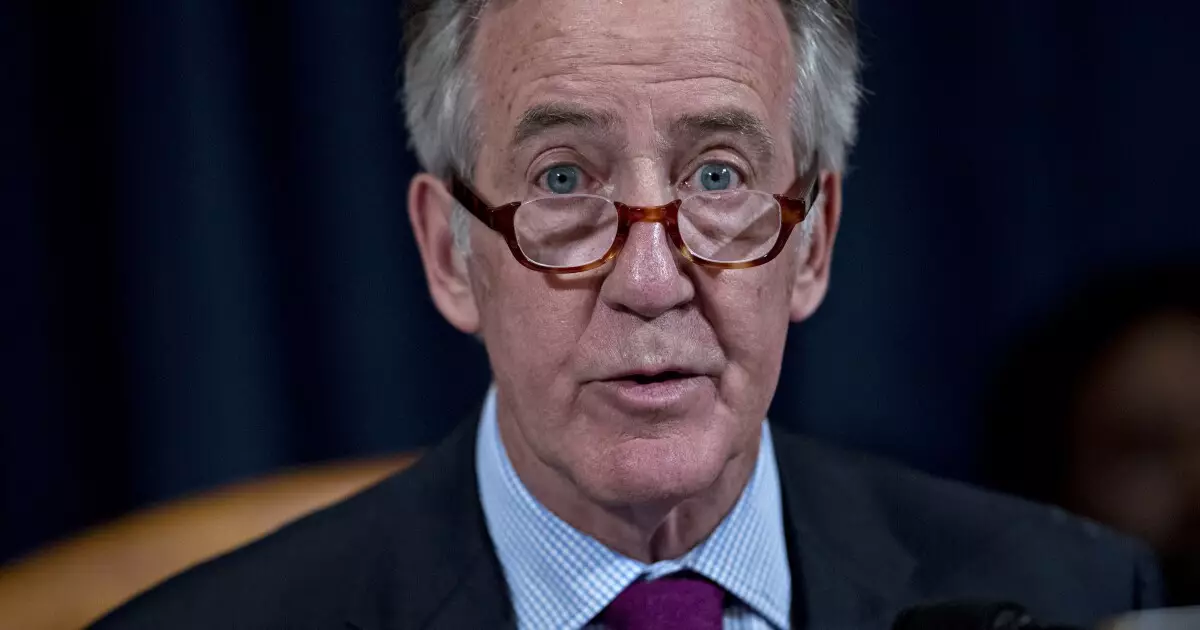The upcoming elections are not just another routine event on the American political calendar; they represent a pivotal moment that could reshape the landscape of congressional committees and, consequently, the nation’s approach to significant policy issues. With a handful of tightly contested races, especially in the Senate and the House of Representatives, the outcomes could result in sweeping changes that affect tax legislation and infrastructure development. As we approach these critical polls, the implications of potential shifts in power carry immense weight.
In this electoral cycle, 34 Senate seats are up for grabs, putting control of the upper chamber in the balance. Democrats only need to flip four seats to reclaim a majority, while the Cook Political Report identifies 22 House races as toss-ups. Current polling suggests a slight advantage for Republicans in the Senate, while Democrats may secure a narrow victory in the House. These outcomes are crucial because party control directly influences who leads key committees impacting both tax policy and infrastructure funding.
If Republicans succeed in the Senate, Sen. Mike Crapo of Idaho is likely to assume the leadership of the Senate Finance Committee, a position that plays a vital role in tax legislation. Crapo has voiced concerns regarding the expiration of provisions from the Tax Cuts and Jobs Act (TCJA). He has recently proposed a workaround that could safeguard the municipal bond tax-exemption by extending the current law without offsets, which could significantly reshape revenue-raising strategies for the forthcoming fiscal challenges.
The banking sector, too, is facing a potential shake-up. The Senate Committee on Banking, Housing, and Urban Affairs will experience considerable alterations based on Tuesday’s results. Should current Chair Sherrod Brown, D-Ohio, lose, the Committee could see Tim Scott, a staunch Trump ally, stepping into a leadership role if Republicans gain control. This shift in leadership would signal a transformation in the oversight of banking and housing policies, which might steer the legislative agenda for financial regulation and housing finance.
Tax Reform Ahead: The Role of the Ways and Means Committee
On the House side, the picture is equally charged with anticipation. The House Ways and Means Committee, headed by Jason Smith, R-Mo., is gearing up for significant tax reform discussions. Smith has established ten tax teams to gather insights and opinions on shaping tax laws for the upcoming year, particularly as various provisions of the TCJA approach expiration by 2025. If Republicans sweep the election, quicker action on tax reforms is likely, including adjustments to the state and local tax (SALT) deduction—a critical issue for municipal bonds—and the potential elimination of the marriage penalty.
Conversely, if Democrats regain control, Richard Neal, D-Mass., with his previous experience chairing the committee from 2019 to 2023, is expected to reclaim leadership. Neal is widely regarded as a supporter of municipal bonds, which could signal a favorable environment for policies championing local government funding through such financial instruments. His influence will be instrumental in navigating the complexities surrounding tax legislation and its impact on municipalities.
Attention to infrastructure is equally pressing, particularly as the House prepares to address the next surface transportation bill. Under the chairmanship of Rep. Sam Graves, R-Mo., the current committee has been cautious about its long-term plans. Graves is expected to seek a waiver to extend his tenure beyond the six-year limit if Republicans maintain control. Should that not materialize, the committee may pivot to other leadership, with Rep. Rick Crawford, R-Ark., being a notable contender.
In contrast, Democrats are poised to support infrastructure initiatives through Rep. Rick Larsen of Washington, who is likely to take charge should the party reclaim the House. This leadership transition comes at a critical time, as the $1.2 trillion Infrastructure Investment and Jobs Act is set to expire in 2026. How Congress decides to approach this major hurdle—whether by continuing competitive grant programs or reverting to traditional funding formulas—will shape the country’s infrastructure landscape for years to come.
Financial Services: A New Era Ahead
Irrespective of the election’s results, the House Financial Services Committee will undergo a leadership change, as current Chair Patrick McHenry, R-N.C., is retiring. The jockeying for leadership among Republican contenders highlights the anticipation surrounding financial oversight, particularly regarding investors and Wall Street. If the Democrats emerge victorious, Rep. Maxine Waters of California, a seasoned political force, could steer the committee’s agenda focusing on long-term reauthorization of important programs like flood insurance.
The upcoming elections represent more than just individual races; they will determine critical leadership roles that will influence U.S. tax policy, infrastructure investment, and financial regulation. With potential shifts in party control, the path forward could either bolster municipal funding and infrastructure rehabilitation or pose significant challenges that will reverberate throughout the economy. As voters head to the polls, the stakes couldn’t be higher, and the implications will be crucial for governance in the coming years.

